The age of Artificial Intelligence (AI) is hardly right out of a science fiction novel anymore; it is already redefining industries across the globe. AI has started being part of the business ecosystem across all sectors, from healthcare through finance to retail, helping businesses work faster, work smarter, and deliver a better experience. One of the emerging uses of AI, and one of the fastest-growing areas of application, is social media, enabling marketers to use diverse tools to communicate in a new way with their followers.
Use of AI in social media marketing is crucial. With the ongoing evolution of social platforms, marketers are increasingly looking towards AI to automate tasks, create high-performing content, understand and interact with customers, and analyze massive volumes of data. Yet, these advancements can involve serious issues that marketers must consider, from ethical snafus to possible pitfalls.
In this blog, we will explore how AI is skyrocketing in the social media market, what it brings to marketers, the challenges they face, and the ethics they must navigate. To properly utilize AI in social media strategy, we need to understand both sides of the argument.

1. Understanding AI in Social Media
Definition of AI in the Context of Social Media Marketing: AI, by definition, is when machines can do tasks that would typically require human intelligence. These include, but are not limited to, capabilities such as decision-making, learning from data, and pattern recognition. Social media sites have a lot of data, which helps AI tools function within them—AI tools for social media marketing utilize this data to build personalized experiences, predict individual behavior, and automate repetitive tasks, including scheduling content and interacting with customers.
Natural Language Processing (NLP), Machine Learning (ML), and Computer Vision are the three key AI technologies fundamentally transforming today’s social media and marketing. Businesses can use these technologies to create relevant content, analyze customer sentiment, predict trends, and enhance marketing strategies.
Historical Context: Social media marketing has undergone years of rapid technological improvements. Marco explores the golden days of marketing on these platforms, which at the time was a lot of work and little in the way of analytics. And, with the rise of AI tools that provide lightning-fast, superhuman technologies that enable us to perform our jobs at incredible speed and efficiency, it’s no wonder that vast changes have happened for marketers over the past decade.
2. Opportunities Presented by AI in Social Media Marketing
The Role of AI in Content Creation:
AI-Driven Content Generation: AI-powered tools such as ChatGPT, Jasper, and Writesonic have transformed content creation, making it possible for social media marketers to create top-notch content in a shorter time frame. The AI writing tools generate blog posts, captions, headlines, and even whole articles using advanced Natural Language Processing (NLP) algorithms.
Personalization is also one of the main benefits of AI generated marketing content. AI tools can track and analyze audience behavior, preferences, and demographics, enabling marketers to customize the content to cater to different segments. Learning what speaks powerfully to their audience allows marketers to provide much more relevant and engaging content, increasing the likelihood that they will forge deeper connections.
Moreover, AI-assisted content creation offers a time-efficient solution that simplifies and maintains a regular posting schedule. Automated content generation frees marketers to engage in strategic activities such as content curation, community building, and campaign optimization.
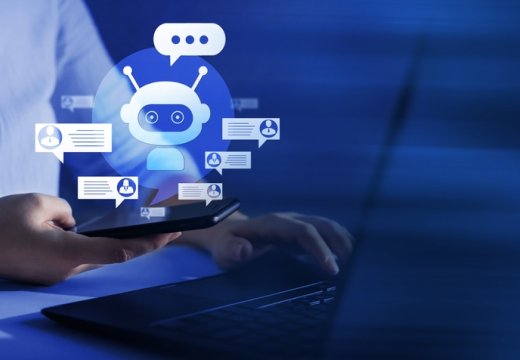
AI and Visual Content: Textual content is one-half of the content marketing pie, while video is the second half of social media. Social media sites like Instagram, TikTok, and Pinterest rely heavily on imagery and video to attract and engage users. A whole sector of visual content creation by AI tools like Canva and DALL·E. These tools can create custom graphics, videos, and complex designs from simple input, making professional visual motifs faster and at a fraction of the cost.
Moreover, AI can be valuable to a brand’s identity. AI can then use data from a brand’s existing visual assets and analyze it using algorithms to suggest variations or updates to ensure its visual elements are consistent and relevant. This is especially necessary when social media channels and design trends are evolving.
Enhanced Creativity and Customization: AI tools are not all about efficiency; they also broaden creativity. Using machine learning algorithms, AI can enable marketers to experiment with new formats, designs, and styles, redefining traditional social media content. From developing immersive experiences via AR filters to generating bespoke visual styles, AI allows them to experiment with creative ways of reaching their audience.
Moreover, AI helps marketers deliver hyper-personalized content at scale. For example, using customer data and preferences, AI driven tools can generate content personalized to a user, making each experience feel personalized and meaningful. With that high level of customization, it was impossible without a massively human overhead, but the scaling up that AI allows the potential for mass personalization.
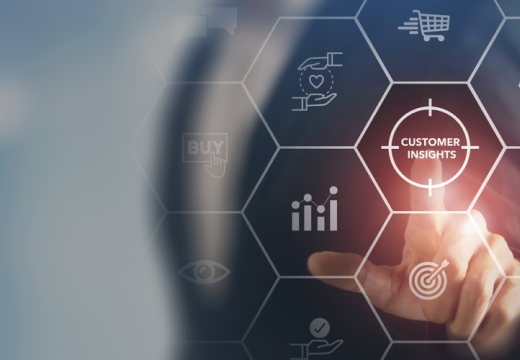
AI and Customer Interaction on Social Media
Chatbots and Virtual Assistants: One of the areas in which AI has immensely influenced customer service, especially on social media. With the rise of AI chatbots and virtual assistants, businesses can now talk with their customers like never before, offering an instantaneous reply 24/7. For instance, many companies use AI-powered chatbots on the Facebook Messenger platform to respond to frequently asked questions, suggest products, and even help you make a purchase.
AI-Powered Customer Service Is Available 24/7: AI-powered customer service is one of the most apparent benefits of using data analytics in social media marketing. This means that instead of waiting for hours or even days to get a response, customers can now have immediate assistance, which ultimately enhances customer satisfaction and loyalty. Moreover, AI chatbots can address mundane queries, freeing up human agents for more complicated problems. It makes it easier and more cost-effective for businesses to become more efficient.
Social Listening and Sentiment Analysis: Social listening monitoring social media platforms for mentions of your brand, product, or industry. AI tools can monitor these mentions in real time, showing how customers perceive your brand. Sentiment analysis enables marketers to determine the emotional tone behind social media interactions by classifying them as positive, negative, or neutral.
AI-driven sentiment analysis tools can help marketers capture an accurate snapshot of customer emotions, allowing them to pivot their strategies as necessary. For instance, when a brand experiences a spike in negative sentiment through social media, AI solutions can help swiftly identify the problem so that the brand can address it and limit any impact.
Moreover, knowing consumer sentiment is crucial for producing engaging content. By leveraging trends and emotions, marketers can create content that speaks to their audiences and makes them more likely to share, comment, and interact with the brand.
Personalized Communication: Another area of profound application of AI in social media marketing is the ability to communicate on an individual level without having to do it yourself. For instance, AI can differentiate audiences by behavior, preferences, and demographics.
In addition, it allows us to use AI-powered personalized communication that can go beyond automated responses. This chapter will explore how we can use AI to create dynamic interactions. This reactive strategy enhances customer satisfaction and motivates them to engage more.
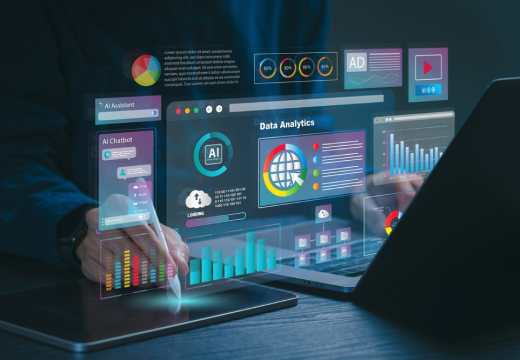
AI in Analytics and Data Insights
Predictive Analytics and Campaign Optimization: AI redefines data analysis and how marketers approach predictive analytics and campaign optimization. AI tools can predict the future regarding trends and strategies by analyzing data available from the past and determining significant trends. This forecasting ability helps marketing professionals stay one step ahead, leading to data-based decisions and helping launch real-time optimization for social media campaigns.
Improved ROI Measurement: Accurately measuring return on investment (ROI) is one of the biggest challenges for social media marketing. Marketers can then use AI tools to track and measure these metrics more accurately, including engagement, click-through, conversions, and more. AI can analyze this data to provide insights into which campaign components create the most value so marketers can focus their resources where they are most effective.
In addition to following the customer journey from the initial point of contact to the final purchase, AI can provide a clearer picture of how social media conversions lead to real-world results. This helps businesses make data-backed decisions, enhances their marketing strategies, and potentially generates higher ROI.
Advanced Audience Insights: Knowing your audience is a key to successful social media marketing for business. AI tools leverage huge data pools to help marketers segment their audiences based on demographics, preferences, behavior, etc. Marketers can craft detailed customer personas that shape content and advertising efforts.
This can help them optimize their social media strategy for maximum impact and ensure they are engaging with the right people in the right way. AI can also assist marketers in identifying emerging trends and shifts in customer behavior, allowing them to update their strategies to remain relevant in an ever-changing market.

Opportunities for Marketers
Increased Efficiency: The primary benefit of AI in social media marketing is its augmented efficiency. AI tools can automate tasks like scheduling posts, curating content, and responding to elementary customer inquiries. This allows marketers to devote their time to higher-level tasks like creating polished content, responding to followers, and tracking performance metrics.
Automation also enables businesses to grow their marketing activities without spending much money. For marketers, AI-powered tools allow you to manage multiple social media accounts, connect with a broader audience, and deliver personalized content at scale.
Enhanced Targeting and Personalization: AI can help businesses create hyper-targeted campaigns that cater to specific groups of people. By analyzing data from the best social media platforms, AI can determine which users are more likely to engage with specific content or products. This allows marketers to craft targeted messages and offers that appeal to each segment, resulting in better engagement and conversion rates.
Cost-Effectiveness: AI tools can significantly reduce marketing campaign costs by automating processes, improving targeting, and optimizing campaigns. AI-driven tools, for instance, can analyze ad performance in real-time and readjust bidding strategies to maximize ROI. This helps marketers avoid overspending on low-performing ads and shift budgets toward the most decisive campaigns.
3. Challenges and Ethical Considerations
Some of the reasons that businesses are hesitant to implement AI in their operations are:
Data Privacy and Security Concerns: Although AI provides multiple advantages, it can also create privacy and security issues. AI tools are powered by the plethora of personal data gathered by social media platforms. However, this data is susceptible to breach and misuse, and privacy violations and legal problems may arise.
Over-Reliance on Automation: Although automation is a massive benefit of AI, it can also lead to excessive dependence. Another aspect of AI and social media marketing is their human-driven nature, wherein even though AI can perform routine tasks, it lacks qualities such as creativity, intuition, and all the subtlety that marketers offer in this domain. Another common mistake is over-automating customer interactions, which can be inauthentic and could be more effective at helping build rapport with your followers.
To summarize, successfully adopting best ai for social media marketing will require finding the right balance between automation and human hands. AI should enhance human work, not eliminate it.
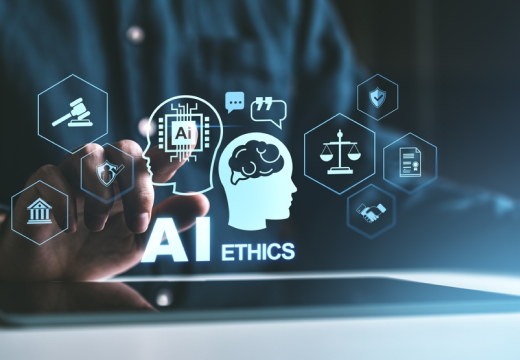
AI Bias and Ethical Concerns: AI algorithms are only as effective as the data they are trained on, and biased data can result in biased results. For instance, if an AI tool is developed based on data that reveals prejudices, we may inadvertently produce biased content or discriminate against certain groups. This calls into question the fairness and inclusivity of AI-powered marketing efforts.
Marketers’ AI tools must be engineered with fairness versus bias to ensure that content creation, ad targeting, and automated processes do not create barriers to entry for subpopulation groups. Regular audits of AI algorithms and updates can minimize the risk of bias and ensure the coordination of marketing activities and ethical standards.
Misuse of AI for Manipulative Practices: AI is highly effective in generating deep fakes, fictitious reviews, and altered content, which poses ethical dilemmas for marketers. While AI has potential as a tool for creating content, it has also been weaponized against viewers by creating fake news. AI-generated deep fakes, for instance, can be used to make misleading videos or photos that deceive users about a product or brand.
While marketers are already ethically bound to be responsible for using AI to continue building trust with their audience, they should not engage in manipulative practices that could potentially damage their brand’s reputation. Social media marketing can benefit immensely from adopting ethical AI for long-term success.
4. The Future of AI in Social Media Marketing
Emerging AI Technologies: As AI technology evolves, so will its social media endorsement marketing applications. With the ever-growing fields of natural language processing, machine learning, and computer vision, even more advanced AI programs that explore consumer behavior can uncover previously unreachable information. With constant updates, you can test everything under the sun!
Integrating with Other Technologies: Integrating AI with emerging technologies like AR, VR, and the metaverse is becoming a trend. These new integrations will enable marketers to build immersive, multi-sensory experiences that spark customer engagement in innovative ways. AI-powered AR filters, such as interactive brand experiences, can be created using popular platforms like Instagram and Snapchat.
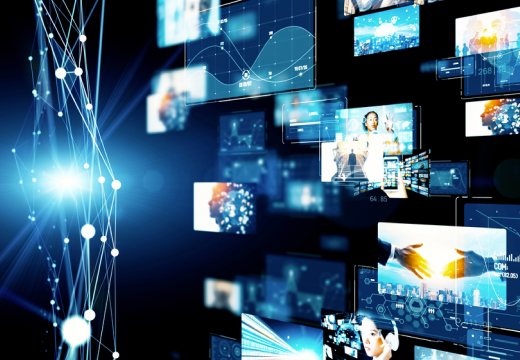
The Age of Human-AI Collaboration: The future of social media marketing with AI will not be a world where AI replaces humans but rather one where it enhances human creativity and capabilities in this field. AI tools offer marketers untapped potential to improve efficiency while maintaining the human touch when partnered. In the future, the challenge will be striking a balance between AI-driven automation and human intelligence to achieve the best of both worlds for maximum impact.
AI rapidly transforms the social media market, offering marketers powerful tools to enhance content creation, customer interaction, and data analysis. The opportunities for marketers are vast, from AI-driven content generation to predictive analytics. However, these opportunities also come with challenges, which include data privacy issues, the possibility of over-reliance on automation, and ethical considerations surrounding the use of AI.
These technologies have many marketing applications, as they can be handled in social media and technology, which can only be positive for all parties involved. This achieves long-term success as marketers leverage the full power of AI to build engaging and personalized experiences for their audience by prioritizing ethical practices, transparency, and fairness.
AI is undoubtedly the future of social media marketing, and the ones who adapt to these changes will be better positioned to thrive in an ever-changing digital landscape.

